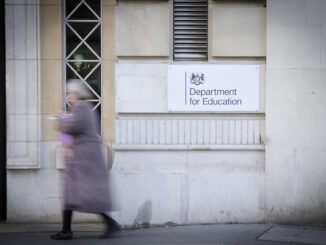
Parents facing prosecution for home schooling say vulnerable children and relatives’ safety comes before school attendance
CREDIT: This is an edited version of an article that originally appeared on The Guardian
Will Coombs (not his real name) has to test the blood of his 10-year-old son, Jamie, every two hours, even at night. Jamie has brittle diabetes, a rare form of type 1 diabetes that causes severe swings in his blood sugar levels. Before the pandemic he was hospitalised after catching a cold; on another occasion, with a stomach bug.
His parents are used to being cautious when even trivial viruses are circulating at school, because these can cause Jamie’s blood sugar to fluctuate dangerously. People with diabetes have been disproportionately affected by COVID; they are much more likely to develop serious complications.
The family decided to home school their three children to keep Jamie safe from COVID. His hospital consultant supports the family’s decision, but the government is threatening them with fines or prosecution if the children do not return to class. “Education is important, but health should be the priority,” says Will. “You cannot learn if you are seriously ill – or worse – as a result of catching COVID.” He believes the Department for Education’s stance on attendance at all costs is discriminatory.
Jamie’s consultant wrote recently to his brother’s secondary school urging it to be “as supportive as possible” of the family’s decision to home school until all three children had been vaccinated and case rates were lower but now, after advice from the DfE, the local authority has instructed the school not to send any work home to the family, and has threatened them with fines or prosecution; the primary school that Jamie and his sister attend has made the same threats.
Will doesn’t blame the headteachers, or even the council; he blames the government. He says the secondary school head “understands where we are coming from” but is under pressure to lean on families like his. He says the head has been told by the DfE that shielding has finished and all pupils must now be back in school. “Heads and teachers know the families and understand the issues and individual circumstances – why can’t they be trusted to make a sensible decision on each case?” says Will, who trained as a teacher.
The government is consulting on more prescriptive plans to boost attendance and end what it calls a ‘postcode lottery’ of how schools manage absences. These sorts of COVID cases are a grey area for schools; the education secretary, Nadhim Zahawi, has confirmed in a letter to the Good Law Project that heads can exercise discretion over individual cases but, in practice, schools say the very clear directive from the DfE is that all children must return to the classroom and schools feel under pressure to deliver this. Parents who are home schooling because of COVID say schools are not giving them any work in case they are seen as supporting unauthorised absences.
In January the Centre for Social Justice, a right wing think tank, raised fears about so-called ‘ghost children’, in a report claiming that severe absence ‘has spread across our school system like wildfire’. It said that, in autumn 2020, more than 700 state schools were missing an entire class-worth of children. Dame Rachel de Souza, the children’s commissioner in England, has vowed to track those missing children down.
But families like the Coombses say theirs is a different story that needs to be heard. Their children are not vanishing; they are merely being protected by their families because they do not think there are enough mitigations in school to keep them safe. Many say, paradoxically, that the pressure from the DfE is forcing them to consider opting out of the system permanently.
Kim Wareham, from Bath, reluctantly deregistered her 10-year-old daughter – who has a learning disability and a rare genetic syndrome – from her special needs school after keeping her at home since numbers rose due to Omicron. Kim says she deregistered because, without remote work being sent home for her daughter, she felt she had been shut out of the system. “We were learning about electricity and my daughter made a torch out of a cardboard tube and wired up the circuits. She was so proud of it and we sent a photo, but so far we’ve heard nothing back. That’s sad.
“Having my daughter around all the time is wonderful,” she says, “but it is so important she mixes with peers who face similar life and learning issues. It feels really unfair that we’ve had to remove her.”
The head of a primary school in Kent, who asked not to be named, said, “We use a range of strategies to try to encourage parents to bring children in – the risk is that, if you push them too hard, they self-select to home educate and are never seen again in the education system.”
Geoff Barton, general secretary of the Association of School and College Leaders, says cracking down on attendance will be a key part of the forthcoming schools white paper. “I’ve been saying you must be so careful not to demonise parents and make them feel they are the problem,” he says.



Be the first to comment